Report by Amnesty International | Criminalization of Same-Sex Conduct in Sub-Saharan Africa
June 28, 2013
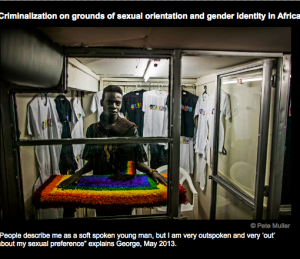 This report provides an analysis of the legal environment and wider context of human rights violations against lesbian, gay, bisexual, transgender and intersex (LGBTI) individuals in sub-Saharan Africa. Recent years have seen increasing reports of people being harassed, marginalized, discriminated against and attacked because of their real or perceived sexual orientation or gender identity. This is occurring in countries whose legal systems still condone the criminalization of consensual same-sex behaviour, and in countries where the police and justice systems are failing to prevent these crimes from happening.
This report provides an analysis of the legal environment and wider context of human rights violations against lesbian, gay, bisexual, transgender and intersex (LGBTI) individuals in sub-Saharan Africa. Recent years have seen increasing reports of people being harassed, marginalized, discriminated against and attacked because of their real or perceived sexual orientation or gender identity. This is occurring in countries whose legal systems still condone the criminalization of consensual same-sex behaviour, and in countries where the police and justice systems are failing to prevent these crimes from happening.
The continued criminalization of consensual same-sex conduct in 38 African countries is a serious cause for concern. The existence and implementation of these laws violates a raft of international and regional human rights norms, and serves to marginalize one group of Africans based on their sexual orientation and gender identity alone. The last decade has witnessed efforts in some sub-Saharan African countries to further criminalize LGBTI individuals by ostensibly targeting their behaviour, or to impose steeper penalties and broaden the scope of existing laws. Uganda has seen repeated attempts since 2009 to introduce the Anti-Homosexuality Bill – a bill which would seek to impose the death penalty for ‘aggravated’ homosexuality, and which would criminalize anyone in Uganda who does not report violations of the bill’s wide-ranging provisions within 24 hours to authorities. South Sudan, on becoming independent in 2008, criminalized consensual same-sex conduct for women and men with up to 10 years’ imprisonment. Burundi criminalized same-sex conduct for men and women in 2009 by revising the criminal code to outlaw ‘sexual relations with someone of the same sex’. In 2011 and 2012, Nigeria and Liberia respectively introduced bills to toughen penalties for same-sex conduct. And Mauritania, northern regions of Nigeria, the southern region of Somalia and Sudan, retain the death penalty for the same.
Laws criminalizing consensual same-sex conduct affect LGBT Africans on a daily basis. In some countries, like Cameroon, individuals are regularly arrested after having been denounced to authorities as being gay or lesbian. Individuals are usually arrested, charged and sentenced without evidence of same-sex conduct, and sometimes invasive medical examinations are performed in an attempt to obtain ‘evidence’ of such. Even in countries where anti-homosexuality laws are not routinely implemented, the existence of the laws alone provide opportunities for abuse, including blackmail and extortion, both by police and by non-state actors. Furthermore, the existence of laws that criminalize one group of people based on who they are and who they (are presumed to) have consensual sex with, sends a message to the broader population that discrimination on the basis of sexual orientation and gender identity is acceptable, and that human rights do not apply to LGBTI people. This creates an environment in which harassment, intimidation and violence against LGBTI people can flourish, and people can perpetrate such acts with impunity.
AMNESTY INTERNATIONAL





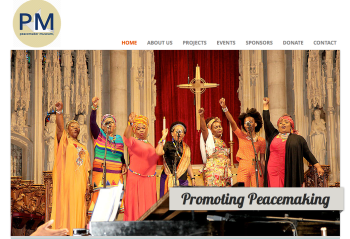




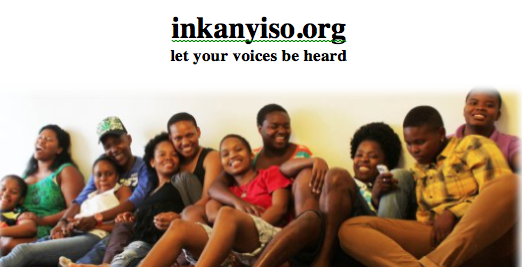







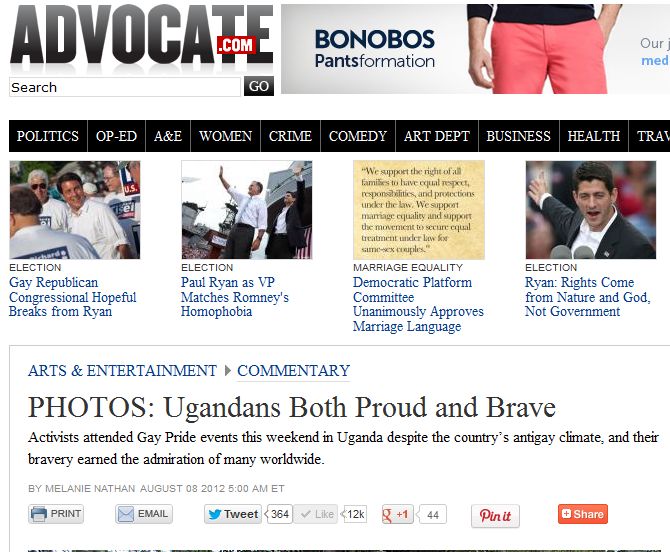
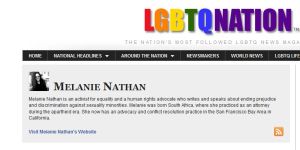
 PoochParkWear customizes hoodies and t-shirts, the good, the naughty, the in between, whether proud or quirky let them be seen. We also offer biker jackets, croc or pleather collars, a variety of collar charms, and our special Zinja beaded collars made by a co-op of HIV-positive South African women, the Sisonke women who weave the beads onto the collars.
PoochParkWear customizes hoodies and t-shirts, the good, the naughty, the in between, whether proud or quirky let them be seen. We also offer biker jackets, croc or pleather collars, a variety of collar charms, and our special Zinja beaded collars made by a co-op of HIV-positive South African women, the Sisonke women who weave the beads onto the collars.

Leave a Reply